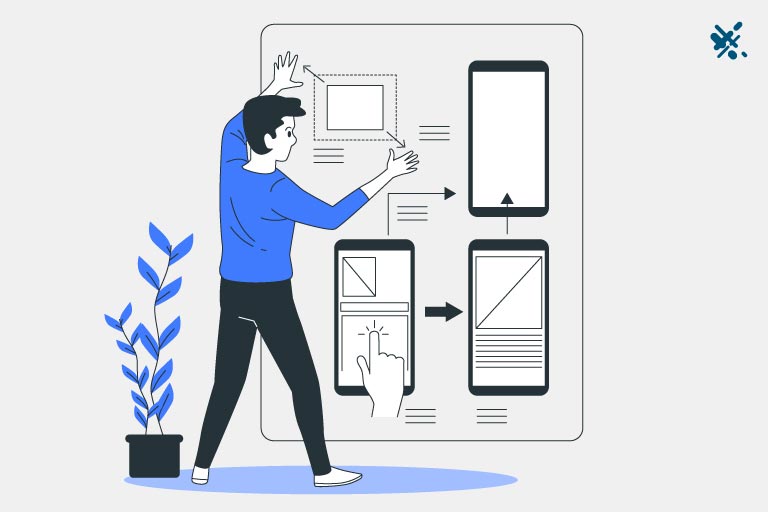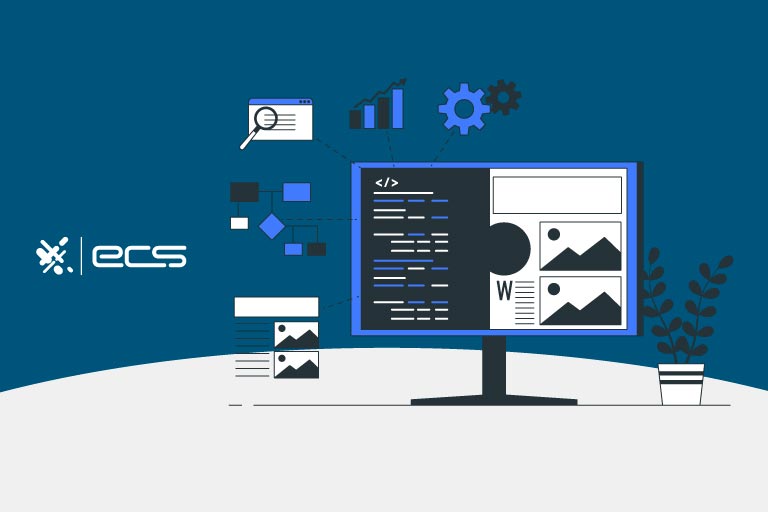A key part of leveraging payment data analytics to boost retail sales is through the use of integrated payments. Integration is a hot topic in business, and rightfully so. By integrating different data sets and streams of data, businesses can have greater insight into their operations.
Payments can be the lifeblood of a business. But payments are more than just revenue. They represent data and metrics that are crucial to how the business is managed and run.
A smart business that can leverage its data is at a huge advantage when it comes to forecasting and finding areas for improvement. This data can also be used to increase customer service and maximize pricing structures to increase profit margins.
In this article, we’ll go over the key elements of integrated payments and how they work. We’ll also go over some examples to help you better understand the topic. Finally, we’ll explore the benefits and how you can start implementing integrated payments for your business.
What Are Integrated Payments?
An integrated payment is essentially when your payment system communicates with your other business systems and shares data automatically. It’s a broad term that covers a wide range of communications between almost any type of business software.
Integrated payments can work with both eCommerce payment processing and POS or point-of-sale processing.
The goal of this integration is to reduce time wasted either manually entering information across different systems. Which is costly and prone to errors. Another goal is to create more useful data sets for the business. Which can then be mined to find efficiencies and other areas that can improve business operations or profitability.
Let’s use a very simple example of integrated payment services and one you may already be aware of. A business can connect its payment processing software to an accounting program such as Quickbooks. By doing this, they integrate the two systems and now customer data and invoicing info is automatically entered into their Quickbooks software as soon as a payment is made.
There is no need for time-consuming manual data entry and also there are no gaps in data, missing data, or outdated data. For example, if data hasn’t been manually entered yet into various systems, employees accessing that data will have gaps.
Many businesses that run on spreadsheets may already be familiar with these types of data gaps or missing data.
An integrated payment platform saves time and creates data that is automatically updated in real-time and is always current. They also help your business stay PCI compliant, which is another bonus we’ll touch on later.
The above was just a simple example, and later in this article, we’ll explore different examples along with their benefits.
Payment Integration For E-commerce Businesses
Another common use for payment integrations is for online stores. Whether you host your own website to sell products or use a platform like Shopify, integrated payments can make the process of accepting payments and entering them into your business software much easier.
For example, most online stores use some sort of third-party shopping cart such as WooCommerce.
Some others are:
- Magento
- Ecwid
- WooCommerce
- BigCommerce
- Volusion
- Zen Cart
These are all integration-friendly shopping carts and will allow you to integrate your payment processing with your website and other software quickly.
Many of these shopping carts require no coding to integrate them. Instead, they just require you to enter your gateway information into the shopping cart configuration and then connect it with your gateway.
Your payment gateway will have a customer dashboard where you can log in and manage integrations.
From there, the integration is complete and your website is ready for payment acceptance. You can then integrate your payments further as outlined in the previous section.
If you need a merchant account that offers the most integrations for your business, contact ECS Payments. We can help you find the account and payment gateway that offers the right integrations for your business.
Benefits Of Integrated Payments
Integrated payments have the capability of benefiting almost all aspects of business operations. Many of these benefits are based on cost savings and improved data analytics
Reduced Labor Requirements
One of the most immediate benefits businesses realize when using integrated payments is a reduction in labor requirements. Since the software is now transferring data between systems, there is no need for manual data entry.
This means that your current employees no longer have to spend time on repetitive data entry and can instead focus on more important tasks that benefit the business.
Labor is one of the highest costs for business and especially today, labor markets are very competitive. So freeing your current employees from data entry or data management to work on more important areas is a key to efficiency.
Increased Data Accuracy
Manual data entry is prone to errors and those errors are often never caught. This can make data far less useful over time and can even lead to accounting problems that take more work to resolve, again decreasing efficiency.
When integrated payment data is shared automatically, data is 100% accurate across all platforms and systems as soon as it’s entered. Every piece of software gets the same data.
Also, if there ever is an error, you only need to fix that error at the source and all connected systems will be updated with the correct information.
Security
If you process payments, then you’re already aware of your security responsibility when it comes to customer data and PCI compliance. As with any security setup, the more separate systems you have to manage, the more of a security challenge it all becomes.
Integrated payments can lock data into one flow, which reduces the chance of a breach from different cobbled-together systems and reduces the chance of a data breach.
Also, many integrated payment solutions have built-in security tools like encryption and tokenization to help merchants remain PCI DSS compliant.
Without integration, PCI compliance is harder to manage for merchants and it opens up the possibility of falling out of compliance and risking penalties or other downsides.
Increased Cash Flow
Integrated payments help you get paid faster when accepting credit cards or other electronic payment methods. Being able to send out invoices immediately without the need to go through a secondary process speeds up your entire billing workflow. This means your business gets paid faster and cash flow improves.
This is especially true for higher-ticket sales or services where volumes can be low. Getting a lead to make a payment closes the deal and allows you to start services sooner.
Improved Customer Experience
Integrated payment transaction data can also be shared with software that the customer interacts with. For example, if a business has a customer portal that allows customers to log in and see their past purchases or invoices.
This type of integration is becoming the expected norm among consumers. This is true of both online businesses as well as brick-and-mortar businesses. Customers want easy access to their information or invoices. Integrations can make that happen in a safe and secure way which improves customer satisfaction.

Marketing And Sales Optimization
One reason that payment Integrations have become so popular with businesses is the fact that they help marketing and sales optimization techniques. This is especially true when payment Integrations are made with CRM software tools such as Salesforce and others.
By leveraging the power of CRM software and combining it with their payment information, businesses can achieve greater insights into their customer behavior and other analytics.
With payment information tied to customer data, businesses can more accurately identify metrics like customer lifetime value as well as other common customer retention metrics.
Another way that payment integration can be used is during the sales process. When a lead is on the line and still hot it’s important to get that deal closed and payment received as soon as possible. This is where payment integration with a CRM can be critical.
Many popular CRMs will allow salespeople to send an invoice to a lead directly from the software. This allows the salesperson to receive payment almost immediately and all of the customer’s details are already filled out.
If you’re involved in sales you understand how important time can be when it comes to closing a deal with a lead. Optimized payment integration with your CRM allows the time between closing the deal and receiving payment to be as short as possible.
Spotting Opportunities In Payment Data
One thing smart businesses are doing today is mining their payment information and data to spot opportunities to maximize revenue or improve customer satisfaction and retention.
Normally, these data points would be spread across several different applications and they would need to be combined with custom spreadsheets or other tools to try to extrapolate the needed information.
Integrated payments combine your accounting and sales numbers all into one place along with other customer metrics if you are using ERP or CRM software.
One example is using this information to determine what makes your top-spending customers different from your average customers. With this data, you can spot areas such as cross-sales or upsells that can turn average customers into more top customers.
How Integrated Payments Work
Integrated payments are a feature of your payment gateway. When you apply for and receive a merchant account, you will gain access to a payment gateway. This gateway is what handles the transaction flow from the customer, to the merchant, then on through processing for approval.
This gateway will have an associated API as well. This API is what communicates with your other software to create the integration.
While this can sound rather complicated, many integrations are actually quite simple and require no coding or coding knowledge. All they require is for you to enter your account information and domain into the various apps that need to be integrated.
How To Set Up Integrated Payments
For example, with Salesforce billing, you would simply add a new remote site. If you were using Authorize.net as your gateway, you would simply enter https://api.authorize.net into the app field.
If you were testing, you would use the sandbox domain https://apitest.authorize.net. From there, you would just configure the gateway class name, which in this case would be AuthorizeDotNetAPI.
Another popular integration is with Quickbooks, the popular business accounting software. Quickbooks works via supported apps, so it’s an even easier integration than Salesforce. From the program, navigate to the “apps” area in the left menu.
From there, type in Authorize.net if that’s your gateway. The associated app will appear and you can click to install it to begin the integration.
Authorize.net also has a feature called Sync which allows for further integration and syncs your gateway and processing information with Quickbooks. You can access this feature from the merchant interface of Authorize.net
Overall, you can have feature-rich integrated payments with the most popular business software and it doesn’t require coding or development. However, if your business requires custom integrations, that’s where the API can be used to create your own integrations.
If you need a merchant account that takes advantage of the latest integrations, contact ECS Payments. We can offer custom payment and integration solutions that fit your business perfectly.
Factors to Consider When Choosing an Integrated Payment Solution
When considering an integrated payment solution, it all starts with your payment processor. Your payment processor can help you decide which systems you need to be integrated and which gateways and processing options work best for your needs.
Some of the factors your processor will consider are as follows:
Business Requirements
This refers to the type of business you run and the industry that it’s in. Every industry has different processing needs, which means different integration needs.
A sales company will have different requirements than an online clothing store. An experienced processor understands these differences and will know what features you need for that specific business.
It’s also important that you communicate what’s most important to your business. If you already know what systems are most critical to your payments, let your processor know so that they understand exactly what integrations you’re looking for.

Your Existing Systems
Of course, your existing systems are the ones that will be integrated so your processor will want to know what these are so they can offer compatible solutions.
These can be your accounting software, ERP, or CRM apps. They may also be any shopping cart software or shopping platform if you are primarily an online business.
API Requirements
This is for more advanced and custom integrations, but if your business needs to develop its own integrations using the gateway API, then you should mention this with your processor.
A strong payment processor will be able to understand all your technical requirements for the API and what your developers need to build and deploy fast.
For example, if you need a sandbox for testing your API before deploying your custom integrations, you’ll want to discuss this with your payment processor so they can offer a gateway with the best sandbox testing environment for your needs.
Not all gateways allow for the same level of customization when it comes to developing their API, so this is extremely critical for those looking to develop their own integrations.
Customer Support
This is critical and it’s what separates the best payment processors from the rest. You need a processor that offers its own customer support to handle your technical questions. Avoid processors that offload support to other companies.
Trusted payment processors like ECS Payments have in-house technical support personnel ready to take your call and help with your integrations. If you need an integrated payment solution, contact ECS Payments to speak with one of our experts who can recommend the best options.
Future Needs
It’s not always easy to forecast your future needs for a business, but there are certain integrations you may be planning on but have not implemented. In this case, you want to make sure you have the ability to easily deploy these integrations when the time comes.
For example, you may be a retail business that only sells from a retail location, but you want to expand and offer an online store. If this is the case, you would want to make sure you have the integrations ready to quickly move your payment processing and gateway to an eCommerce store.
Another possibility is if you’re planning on adding new software, such as for accounting or a CRM solution. Making sure you have the right payment gateway to integrate into these tools is important so that you can act quickly when deploying new software.
Using Integrated Payments With Your Merchant Account
If you’re looking for a merchant account, it’s best to start with all the integrations you need right away. This way, as your business grows, you have all the tools already in place.
At ECS Payments, we offer businesses the merchant accounts they need with full payment gateway integrations that work with all the popular productivity and business software suites.
Contact ECS Payments today and talk to one of our experts about integrated payments and how they can help take your business to the next level.
